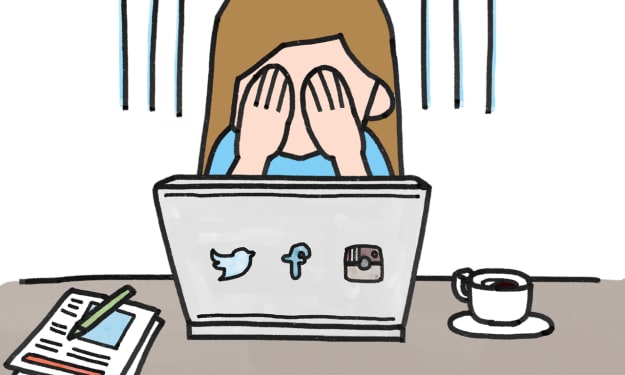Ill and broke
Why the DWP PIP system is failing the sick and disabled in the UK

The Personal Independent Payments benefits system is failing us, and if it is not affecting you directly, it is likely affecting someone close to you. I have been receiving a basic rate of PIP since 2018.
PIP is designed to assess how much illness or disability is affecting the claimant, and then provide extra payments to help with the added costs of being ill / disabled. Evidence has proven that life is a lot more expensive when you are sick; additional needs can be anything from walking aids, special food, taxis if you cannot get around easily, or medical equipment.
For me personally, it worked well until my chronic illnesses became worse; a LOT worse. Then, DWP (Department of Work & Pensions) became tight as a drum, denying my increased struggles (whilst accepting some of them – talk about a God Complex). I have provided as much evidence as I can, and the stress of finances as well as having to keep battling, has made me much more ill.
For the purposes of transparency and openness, I have fibromyalgia (causing pain and fatigue), chronic fatigue syndrome (causing debilitating exhaustion and an abnormal sleep pattern), plus a rare, chronic blood cancer (non-terminal).
Thankfully, the tribunal we have waited 5 months for, is just around the corner. I am very anxious though, as the feeling of ‘battling’ an organisation over money, is an all-too familiar one. (We also recently battled British Gas over a ridiculous – and it turned out – unjustified – bill of £1700. In the end we took it to an ombudsman, who ruled in our favour. If we hadn’t have fought and taken it to a mediator who actually analysed and looked at everything logically, we would be paying off an unfair debt that we never owed in the first place).
Thank goodness for the existence of ombudsman and judges, to help us ‘small people’ take on titans who don’t always follow fair rules if they can get away with it.
The PIP assessment process is generally recognised by users and external organisations to be bewildering and inconsistent. And that is putting it kindly. The written decision following each assessment, seems to have little rhyme or reason, not relating much to the actual assessment. It’s as if the information goes through a scrambler and comes out as a completely random entity.
The DWP make a big thing of letting us know that every medical assessment is carried out by a medical professional, such as a paramedic or nurse. But once the assessment is completed, the decision as to how many points you are awarded, and thus how much money you receive, is made by a ‘decision-maker.’
Why have the assessment carried out by a medically trained person, but have them be nothing to do with the actual decision?
Who are these decision makers I wonder? A mysterious, cloaked entity, trained to say no to 75% of claims regardless of entitlement, in the hope that only around 50% of them will continue to pursue their entitlement.
I wonder also if there is any kind of in-house reward or ‘bonus’ system in place where decision-makers are rewarded by the company for claims that are successfully deterred… (strokes chin thoughtfully).
They must also be aware that a certain percentage of claimants WILL NOT or CANNOT fight beyond the initial award or appeal stage. Not everyone has the mental strength, time, energy, support or health to fight. I guess this is logical. But what a disgusting exploitation of people’s ill health this is.
It is no surprise really that approx. two-thirds of tribunals are upheld. Meaning that it is in our best interest to fight when we know that the decision is inaccurate.
Many claimants state that at tribunal it is the first time they feel heard. Also worth fighting for – to feel heard. Especially as when you are sick and disabled, you can feel invisible and ‘non-human’ in many ways. After all, you have to live your life in a way that doesn’t fit in with other, healthier people. You may have to sleep and rest when others are functioning normally, use different facilities, sit and rest during activities that most other people don’t find tiring. We often feel freezing cold whilst others are fine, or sweating hot when, again, others feel just fine. We need toilets, rest-stops, drinks; and that is assuming we are even well enough to take part! But we are still human beings, and most of us want to fight to feel human, even if it is on a much smaller scale than we could manage before.
I sometimes feel like the disability assessment people assume that we are either too stupid, or too ill to fight for what we are entitled to. Well, personally, that makes me want to fight harder, because of the injustice of it. It will take a lot more energy and drain me. The stress has likely been at least partly responsible for escalating my symptoms a lot more – but as I said before, I would rather be sick with more money, than sick AND broke.
I wonder what it is like to work for the DWP? I wonder which employees get to go home, proud of an honest day’s work assisting sick people? I’ve never in my life heard from anyone who works there, and I’m always curious what the employees’ experience is like.
Huge amounts of money are spent on tribunals that would not be necessary if most decisions were made fairly in the first place. How many millions of pounds are spent on these tribunals a year? Court time is not cheap. The money should be being awarded to eligible claimants and taxpayers, not being wasted on tribunals, two-thirds of which are overturned anyway because the initial decision was not made fairly.
I read recently in the Kidderminster Shuttle (my local paper) that around 560 cases went to tribunal between 2013 and 2021 – in my area of Kidderminster, Bewdley & Stourport alone.
Around 69% saw the decision by DWP overturned in their favour. Interesting statistics.
Especially when DWP are staunchly maintaining that their hugely flawed system is mostly right. Plus, on the official government website, the figures are stated as being drastically lower than 69% for overturned decisions. Funny that… to deter people from thinking that they have a hope in hell?
I know a lot of very sick or disabled people who simply won’t claim, because of the stress involved. I also know others who know they are entitled to more PIP, but when it went to tribunal they stopped wanting to fight, and instead settled for what they already had.
Confusion and inconsistency are actually great systems when you want people, in their frustration, to step back and stop fighting. Great for DWP in any case. If they are happy to be associated with an immoral, unjust system, that is.
I’ve not been ill most of my life; for most of my adult life so far, I was working. I’ve moved around a lot, worked full-time, part-time, had multiple jobs, and been self-employed. I also had a child later in life, following 6 years of infertility. I've been married and I've lived alone. I’ve been all sides of the fence, as it were. And I can conclude that the two most stressful things to deal with long-term – are financial difficulties, and chronic illness.
To experience both of those together – well, many don’t survive it and simply can’t cope. I regularly felt like life wasn’t worth bothering with if you’re broke AND struggling with debilitating illness every day.
Here are my takeaways and advice for people who are sick, exhausted, in pain, struggling – but know they are entitled to some help:
• Fight – it is so worth it, especially as claims are backdated (to the start of the claim, not the start of the illness)
• If you need help with the horrendous claim forms, get help – from a medical professional, a charity, or a friend. Ask a medical professional or close ally for a supporting statement that backs up your claim and how much your illnesses affect you
• You can also get a lot of help and support from Citizens Advice
• You can have moral support at tribunal too, whether it is in person, or on the phone
• It is not so much about the illness, but about the ways in which it affects you daily
• It is not so much about the help you get, but the help you need; this includes supervision to ensure that you can do something safely
• Anything you use to help you stay stable can be classed as an ‘aid.’ I thought my only aid was my walking stick; an aid is also furniture I hang onto as I move around the house, or the edge of the bath I need to sit on to preserve energy when I am getting dressed or brushing my teeth
• Don’t feel defeated if it goes to tribunal – you actually have a high chance of success, because at tribunal it is no longer a ‘decision maker’ deciding on your fate and trying to save money, but a Judge and a medical professional who will be looking at all the evidence in full, and listening to you properly and correctly as you explain your difficulties in full. This CANNOT be underestimated - most tribunals are successful
• Remember to consider emotional distress as well as physical challenges; stress, panic attacks, anxiety, depression caused by your limitations and illness
• Most of all – make sure you get support and feel heard
If anyone is affected by any issues in this article, feel free to email me at [email protected]
About the Creator
Karen Cave
A mum, a friend to many and I love to explore dark themes and taboos in my
Hope you enjoy! I appreciate all likes, comments - and please share if you'd like more people to see my work.






Comments
There are no comments for this story
Be the first to respond and start the conversation.